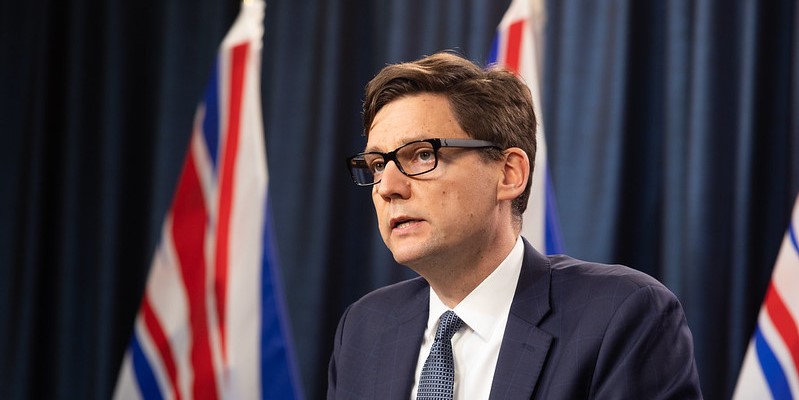Premier Eby fails to learn from mistakes of predecessor in first budget

The Eby government tabled its first budget today. According to the government’s projections, British Columbia will see a $4.2 billion operating budget deficit in 2023/24 and substantial debt accumulation over a three-year period. While the government continues to laud recent surpluses, this budget ramps up spending again, signifying that Premier Eby has not learned from the mistakes of his predecessor.
B.C. was one of the most fiscally responsible provinces in Canada from the late-1990s to mid-2010s. The province’s per-person spending climbed by just 8.4 per cent (inflation-adjusted) from 1999 to 2016, whereas it increased by more than 66 per cent in Alberta and 35.0 per cent in the rest of Canada.
However, the Horgan government began increasing per-person (inflation-adjusted) spending rapidly after taking office. From 2017 onwards, it grew, on average, by 4.7 per cent each year—nearly 10 times the rate of growth from 1999-2016. As a result, per-person (inflation-adjusted) program spending in B.C. reached its highest level on record at $13,250 in 2021. While some of the increase was driven the pandemic, not all of it was. Even excluding COVID spending, 2021 was still by far the highest level of government spending on record at $12,533 per person.
Today’s budget reveals that the Eby government is moving full steam ahead with spending increases as well, increasing program spending in 2023/24 by $7.9 billion relative to last spring’s projections. Spending will increase markedly for areas such as health care and education.
The consequences of this proclivity to spend are clear. B.C. will run operating deficits of at least $3 billion in each of the next three years and the province will see its net debt increase by almost $40 billion over that timeframe, from $58.1 billion to $97.2 billion. This means that each British Columbian will be burdened with $16,522 (inflation-adjusted) in provincial debt by 2025/26, an increase of $5,181 per person from 2022/23.
The Parliamentary Budget Officer (PBO) recently found that B.C.’s finances were unsustainable, which means that government debt is expected to grow faster than the economy in the forthcoming decades. Unless the Eby government was willing to pile more tax increases on top of the ones implemented in recent years (which would be economically damaging), its only option was to reduce spending in the budget to prevent a growing debt burden. Instead of reducing spending though, the government has exacerbated its debt situation dramatically.
Of course, British Columbians pay interest payments to service that debt. The Bank of Canada is currently increasing interest rates to combat inflation, meaning interest payments to service provincial debt will be more expensive in the years ahead. Specifically, the B.C. government expects to spend $3.2 billion on debt interest this year—more than what the province spends on social assistance. This translates to roughly $596 in interest costs per British Columbian—that’s money no longer available for important programs such as health care or education.
Moreover, the budget did nothing to address the province’s tax competitiveness challenges. B.C.’s business and personal tax rates are uncompetitive relative to peer jurisdictions that the province competes with for investment and talent. A recent study found that once all relevant taxes are included, B.C. had the highest marginal effective tax rate on investment in Canada. These high taxes discourage job creation and make it difficult for B.C. to attract and retain high-skilled workers, entrepreneurs and businessowners.
In its first budget, the Eby government continued the recent trend of rapid spending growth and returned the province to operating deficits. Since the government failed to rein in spending, British Columbians will bear the consequences of debt through higher interest costs and potentially tax increases.
Authors:
Subscribe to the Fraser Institute
Get the latest news from the Fraser Institute on the latest research studies, news and events.

